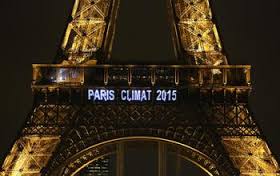 Reactions to the outcome of the Lima Climate Summit have been mixed. The Climate Institute described the outcome as progress. Not perfect but progress nonetheless. Why?Three things needed to happen in Lima.
Reactions to the outcome of the Lima Climate Summit have been mixed. The Climate Institute described the outcome as progress. Not perfect but progress nonetheless. Why?Three things needed to happen in Lima.
Officially, all that governments needed to do in Lima was decide on the upfront information that countries need to include when they announce their post-2020 national targets early next year, and define the scope of draft of the agreement that would form the basis of talks in Paris in November 2015.
Politically, however, Lima also needed to reassure the most vulnerable nations that they will be supported in dealing with climate change impacts. For the Paris outcome to have broad support among the majority of countries this will be important. Adaptation, in particular, therefore needed to be seen to be as important as decisions around emissions reductions targets.
Perhaps much drama in the final hours of the meeting could have been avoided if more outreach from the advanced economies to the Africa Group, small island states and the Least Developed Countries had resulted in a greater confidence that support for coping with inevitable climate change impacts would be forth coming in the post-2020 arrangements. This would have isolated less progressive developing nations and made a stronger outcome more likely.
By and large, however, Lima achieved its mandate, and as a result we now have the broad shape of the Paris agreement. Of course more could have been done, and as always the process is far from perfect, but it is fair to say that the world shuffled a few steps forward on the path to Paris. (See The Climate Institute’s report on possible outcomes for Lima here.)
Some commentators have focused on the paragraph of the draft agreement that says countries ‘may’ provide certain information when announcing targets. In previous versions it was ‘shall’. (Australia supported the latter.) Ideally the stronger language should have been retained; nonetheless it should be seen in the broader context of the evolution of the global climate framework.
Never before has there been an agreement that all significant emitters submit national targets and that they all are judged against the same benchmarks. There is no differentiation here between developed and developing countries. That this was agreed by China, India and Brazil, major emitters that have hitherto been deeply reluctant to accept these requirements, is important progress.
In Durban, countries agreed that a new post-2020 agreement with legal force would be agreed in Paris in 2015 and this would apply to allcountries. In Warsaw last year, countries accepted as part of this all countries would advance post-2020 targets. Now in Lima we see an agreement that in the targets they put forward all countries meet certain international standards of transparency. (Note the poorest countries are given leeway across all these measures.)
The other point on the transparency provisions is that they start to normalise certain international standards against which countries’ actions will be judged. In effect the text defines how countries are expected to act if they are going to be a good global citizen. Stepping back from this would impact a country’s credibility. This pressure will be felt regardless of the strength of the direction given in the final agreement.
One final observation: the Paris agreement is not going to save the world. Too often the media, commentators, NGOs and governments load so much weight on to the UN process that they create expectations that can’t be met. This is partly why the Copenhagen summit was so chaotic – it tried to do too much too soon and nearly broke the system as a result. Some of the commentary out of Lima is heading in this direction again.
Yes, the process needs accountability and pressure needs to be put on governments to be ambitious, but the multilateral system by its very nature can only set international standards of conduct that countries are expected to meet. The UN process can and has facilitated significant emissions reductions around the world, but at the end of the day national governments are the ones accountable. This is why the argument about legally binding targets can be a distraction.
This is not to suggest that the multilateral system does not have an important role. It does—one of the reasons why these negotiations are so hard is that countries take them very seriously. However, it is just one part of the tapestry of action on climate change. The actions that countries are taking at home are in many instances occurring well in advance of the international process to Paris.
So, overall Lima made progress. From its outcome the shape and scope of the Paris agreement can be divined. A difficult year is ahead and success in Paris will depend in part on whether governments, NGOs, the media, businesses and the community focus on what matters in this agreement and, perhaps more importantly, what does not.
Erwin Jackson is deputy CEO of The Climate Institute.









